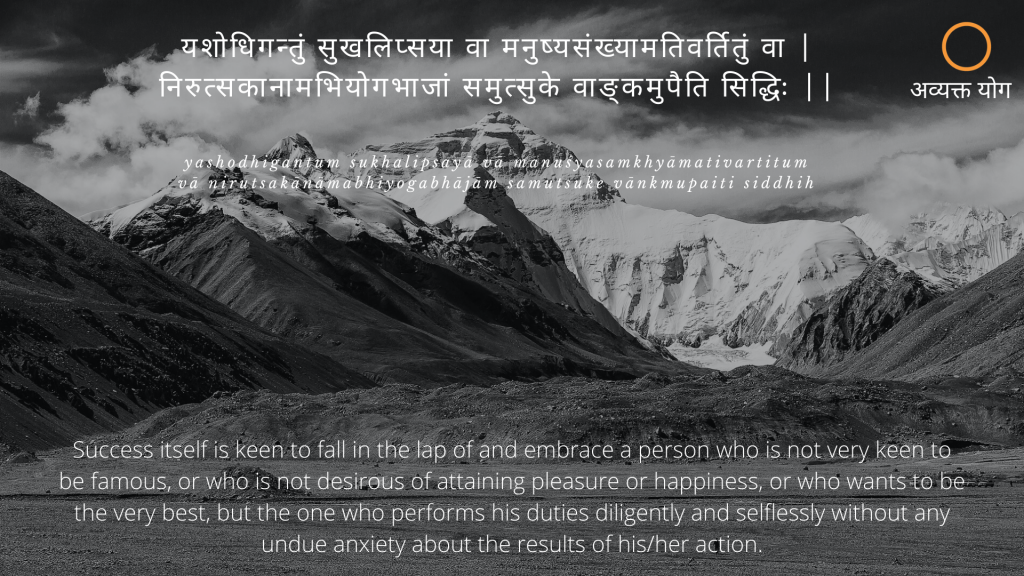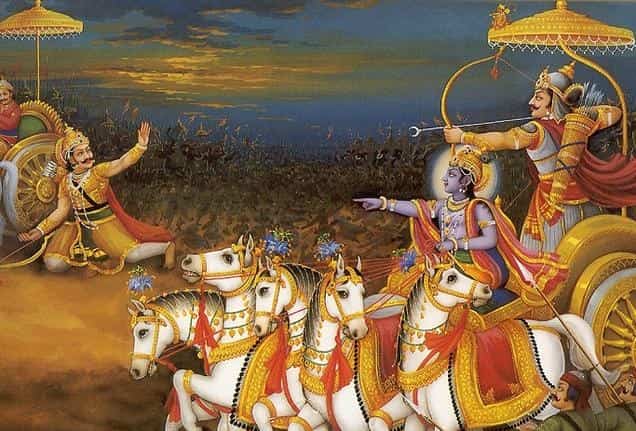यशोधिगन्तुं सुखलिप्सया वा मनुष्यसंख्यामतिवर्तितुं वा |
निरुत्सकानामभियोगभाजां समुत्सुके वाङ्कमुपैति सिद्धिः ||
yashodhigantum sukhalipsayā vā manuśyasamkhyāmativartitum vā nirutsakānāmabhiyogabhājām samutsuke vānkmupaiti siddhih
Kavya Prakasha
Success itself is keen to fall in the lap of and embrace a person who is not very keen to be famous, or who is not desirous of attaining pleasure or happiness, or who wants to be the very best (in any field) but the one who performs his duties diligently and selflessly without any undue anxiety about the results of his/her action.

This śloka is from the The Kāvyaprakāśa, a Sanskrit scripture written by Mammaṭa in the 11th century. This work is also termed kāvya-śāstra (‘science of poetry’). According to tradition, part of the text was said to originally have been composed by Bharata, the legendary author of the Nāṭyaśāstra.
Very much in the vein of Karma Yoga, the śloka sheds light on very contemporary thoughts – ambition and competition.
Our educational system lays emphasis on these two traits in ample measure. Right from the beginning, we are introduced to a sense of ‘I have to be better than everyone else’ – a feeling that we nurture and carry all through our study life, and further into the workplace and the business world.
How to be successful – there is an industry of self-help books and motivational coaching built around this paradigm, this magical secret of success that everyone is so desperate to find. Be the best, go for the gold – no one remembers second place…a motivational exercise has you staring at yourself in the mirror every morning repeating to yourself – I AM THE BEST…Are you? And how does it matter?
When Mozart made his first composition at the age of 5, was he thinking about whom to beat? Or when Sachin started his diligent practice under Shri. Achrekar, was he concerned with the records he went on to make? I don’t think so. Mozart composed since he loved music, Sachin played cricket because it was his passion.
I think their single-minded focus on learning, on discovery, on following their passion, led to the flow – the symphony and the beauty of that famous cover drive.
The rest followed.
Let us aim to be a bit better than yesterday – a lot better than when we started out, and the best version of ourself, when it is time to leave.
Work hard, and if you have given it your best, don’t ponder over the result.

